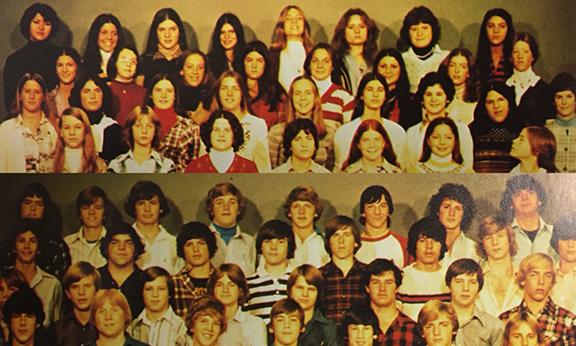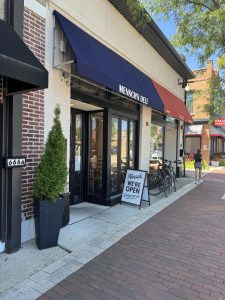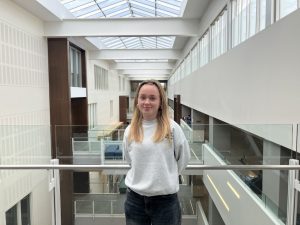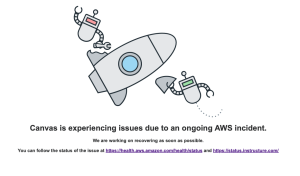Changing student body challenges advisery tradition
This is the second in a three part series on transgender students at New Trier

November 16, 2015
For 90 years, the gender segregated adviser system has been a New Trier tradition, but as recent headlines demonstrate, a gender binary advisery system many not fit the needs of today.
Transgender rights have quickly become a topic among the student body and administration at New Trier.
“It’s really a work in progress where we are now,” Assistant Principal of the Northfield Campus, Peter Tragos said. “We have had transgender students in the past, but none that have been so open with us. The national conversation around the topic has shifted.”
One major place where the discussion is focused, when talking about transgender rights at New Trier, is the school’s historic adviser system that splits the student body into gender segregated adviseries.
Lizzy Appleby, the Pride Youth Program Coordinator at Angles in Northfield, expressed the discomfort many transgender students face.
“Asking students to identify as a certain gender is creating a problem for those who don’t fit into the gender binary,” Appleby said. “Even basic activities in educational settings cause discomfort for transgender students.”
Rachel Hess, sponsor for New Trier’s LGBTQ group Committed to Action, acknowledges the challenges many transgender students face at New Trier.
“The advisery system might be a challenge, especially if they transition during high school,” Hess said. “The administration has been very accepting of students and the work that we do, and they are very open to listening to our concerns.”
The administration’s effort is “a work in progress,” as Tragos described.
“We are trying to learn best practices, and trying to make sure school is safe and equitable for all students,” Tragos said.
Junior Alex Vlahandreas said, “It’s not a question of if we feel safe, but if transgender students feel safe at our school.”
Student comfort is at the forefront of every administrator’s mind according to Tragos.
“We are focused on doing what’s right for students and families,” said Tragos. “This kind of work is not done through policy but by working closely with students and families.”
Students have noticed the administration’s efforts in making the school a welcoming environment, especially for freshman transgender student Alex Singh.
“The administration was all for putting me in a boys advisery. I am comfortable in my advisery, I’m just not used to being counted as a boy,” Singh said, “the school has been doing a good job, teachers are using the correct pronouns, and I can go to the boy’s bathroom if I need to,” he noted.
The benefits of the gender segregated advisory system are seen by Singh, but he also notices one major flaw.
“I can see why girls and boys would need their own space, especially in high school. The only problem is when students don’t fit in to the gender binary,” Singh said.
Singh’s concern was shared by other students, including junior Hannah Coffey.
“Splitting adviseries by gender was relevant a long time ago, but when you have a system that has strict categories, and if you don’t fit them, whether you identify as transgender or not, it makes you feel excluded and unsafe,” said Coffey.
Junior Marnina Hornstein agreed, saying, “Your adviser helps you make your schedule, and I don’t get why that has to be gender segregated,” Hornstein said. “A co-ed advisery wouldn’t be any different or take away from the values of advisery.”
In response to student questioning of the advisery system, Principal of the Winnetka Campus Denise Dubravec said, “Students that don’t identify as transgender have expressed a need to mix advisery, so this is not a new topic. We work with these students and listen and understand their position.”
However, Dubravec went on to say, “We are not looking to change the structure of the adviser system. We believe our current program benefits students as they experience life during their adolescent years.”
Many students still hold the belief that gender segregated adviseries are beneficial.
“Advisery has to create a safe environment. A co-ed advisery would be basically like a normal class,” senior Amanda Wong said.
“I would feel a little uncomfortable if a transgender student joined my advisery, but at the end of the day it doesn’t matter,” Junior Andrew Philips said. “If a student identifies as a girl she should be in a girls advisery—it’s not a big deal.”
Coffey sees positive changes in how New Trier is addressing the transgender community, but in her eyes, there is still room for improvement.
“More people need to know this isn’t just about Caitlyn Jenner. There are lots of people around the world, including at our school, who might feel unsafe or uncomfortable, and don’t like school because of it. If we learn to accept transgender students, then hopefully school will become a better environment. There’s a lot more progress to make, but I’m hopeful,” Coffey said.
But with 4,000+ students, student attitude is also important. Freshman Pallavi Simhambhatla sums this idea up. “What body parts you have don’t matter any more; it matters more what’s inside.”










































